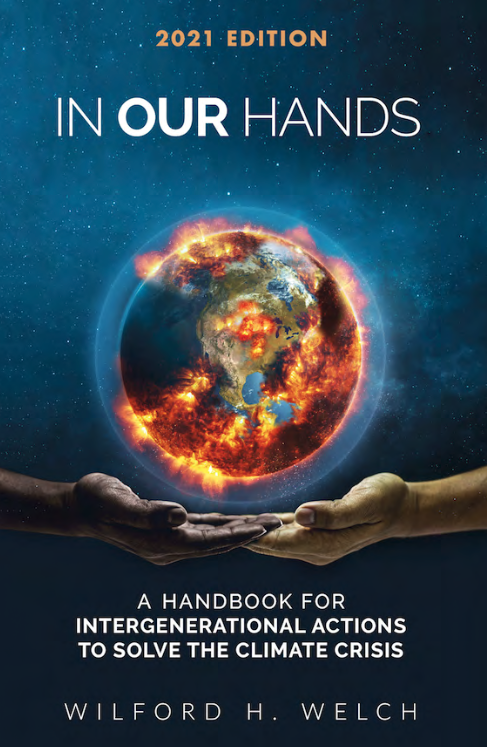Wilford Welch and Sean Munger on how businesses who want to thrive need to anticipate the coming climate impacts on global economy.
Climate Concerns - DiVine Conversations with Bonny Meyer – Wilford talks with Bonny about his deep concern that humanity may not rise to meet the challenge of climate change in time to avoid catastrophic disaster.
Wilford Welch: Motivational Speaking for the Climate-Change Age
“Thank you again for your excellent presentation. We were getting somewhat overburdened with negative news, both scientific and political, so your positive and empowering ideas were just what we needed. I wish we could have you every month but I know there are many more venues that could use you more than us. Your timing is perfect.”
-Will Dvorak, Sierra Club
“Thanks so much for the inspirational talk with our educators. I really appreciate your thoughtfulness and "let's-figure-it-out-together" attitude. Lots of buzz about your talk and possible next steps. We at NatureBridge really appreciate your time, caring and commitment. We're lucky to have you on the team!”
-Fred Brill, Ed.D. Regional Director, Golden Gate NatureBridge
“Thank you so much for your wonderful and inspirational presentation yesterday! It was really terrific and obviously was very well received by everyone there. Thank you for inspiring us to action at Kol Shofar!”
-Louise Lipsey
Drawing on his years of experience as an international diplomat and businessperson, Wilford Welch’s presentations seek to inspire all of us to move from concern to action.
Many of us are worried about global warming yet often paralyzed by the uncertainty of what to do. Using tools he helped develop as a consultant while working with some of the top companies in the world, Wilford presents two visions of the future.
In one version of the future, our efforts to address global warming lead to a more sustainable, prosperous, and harmonious world. In the other, Wilford shows how if we fail to rise to meet the challenges we face, our world will come close to collapse.
Guiding audiences through the process of imagining these two futures, Wilford articulates specific strategies and actions that can be taken by each one of us to achieve the more positive future he envisions.
Some of his key themes are:
Climate change? Global warming? Global sustainability? What are the differences between these challenges and what are the likely impacts and solutions to each?
What could our world look like in 2050 if we rise to the occasion?
What could our world look like in 2050 if we do not take the actions called for?
If these challenges are so serious, why are so few people taking them seriously?
What are the actions individuals can take to address these challenges, in their personal, community, and professional lives?
How did the prosperity delivered by fossil fuels help create this crisis, and how can the crisis created by fossil fuels be turned into a blessing?
Can the positive future we seek be achieved without embracing a higher conscientiousness that includes more sustainable values?
By helping audiences envision these two different futures, if even for a moment in time, we may be able to shift our perspective and think and act differently about the role we play in shaping one of these two worlds.
Another strategy Wilford outlines in his talks describes the benefits of intergenerational collaboration. Crucial to the discussion is how to foster collaboration between generations, bringing them together so they can learn from one another and put their collaborative strengths toward addressing the environmental issues we face.
While Wilford’s messages are relevant to everyone, certain themes and proposed actions are pertinent to different audiences, such as students, business executives, government officials, ordinary citizens, and participants at environmental events. Wilford therefore customizes his talks to the interests of each audience.
The central message of Wilford’s presentations is that it isn’t too late, and it is not too hard. Wilford believes that any action we take will lead to more satisfying lives and a brighter future both for us and for future generations. His new book, In Our Hands: A Handbook for Intergenerational Actions to Solve the Climate Crisis, provides a wealth of ideas and resources for charting a path forward. The opportunity to create a better world is literally in our hands.

